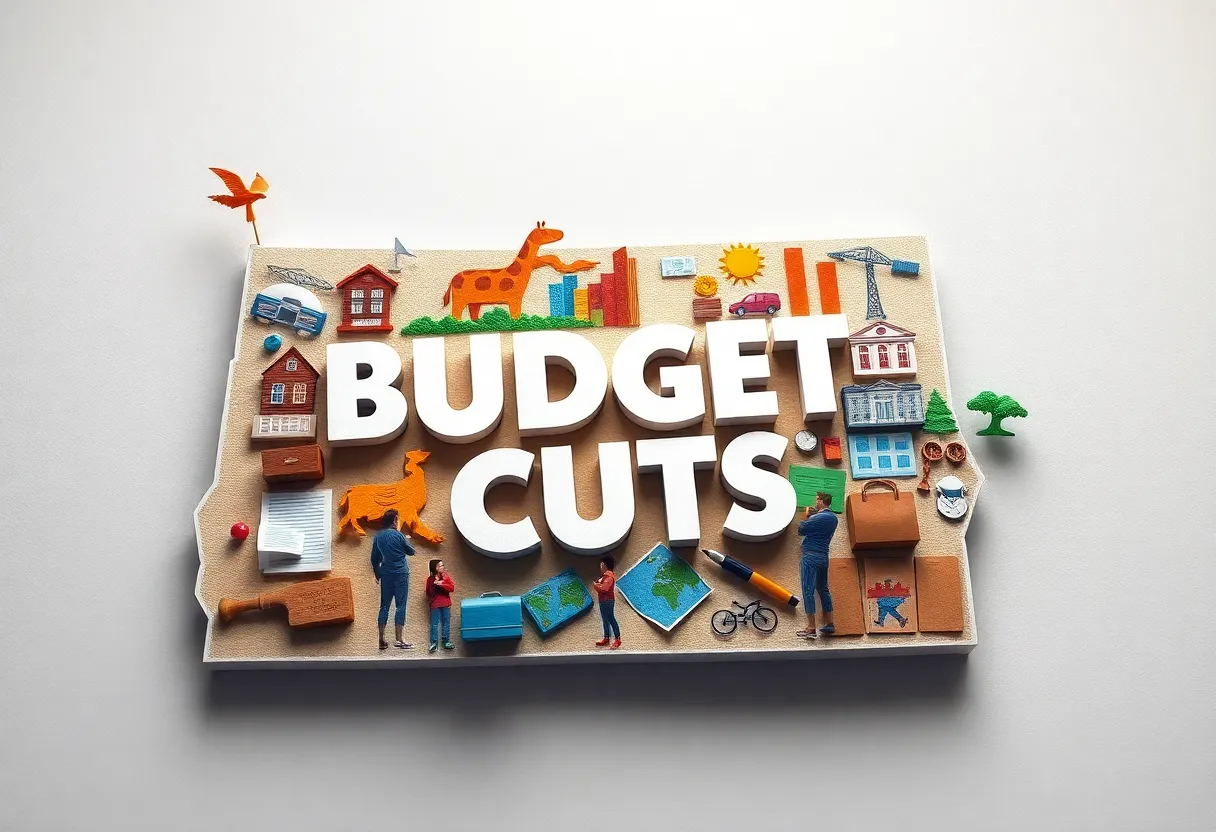News Summary
Virginia Governor Glenn Youngkin has cut $900 million from the state budget using line-item veto authority, primarily affecting capital improvement projects at colleges. As the state prepares for potential economic fallout from federal policy changes, Youngkin emphasizes these cuts are strategic, despite criticism from Democrats. The budget also includes provisions for tax reductions and education funding, indicating a balance between fiscal caution and investment in critical areas.
Virginia Governor Glenn Youngkin has announced a significant cut of $900 million from the state budget, using his line-item veto authority in an effort to prepare for the anticipated economic fallout from federal policy changes under President Donald Trump. The cuts primarily target one-time capital improvement projects at state colleges and universities, projects that could potentially be approved again next year should the fiscal situation allow.
The Governor underlined that these reductions are a necessary precaution as Virginia’s economy relies heavily on federal spending. Specific sectors such as Virginia’s ports and agricultural industries are forecasted to directly suffer from the impact of Trump’s planned workforce reductions, spending cuts, and trade tariffs.
Youngkin has previously set aside $300 million as a cushion against a possible decline in state revenue resulting from federal policies, but later increased that reserve to $900 million. He attributed this significant figure not to heightened concern over the state’s economic health, but rather to the nature of his budgeting powers. The state’s budget surplus is projected to be around $3.2 billion, allowing for these cuts to be made with an eye toward stabilizing the budget in light of potential future challenges.
Breaking down the specific budget cuts, approximately $691 million will be taken from ten capital improvement projects, while an additional $209 million will affect discretionary programs in the Department of Commerce and Trade and other governmental departments. Importantly, no construction has commenced on these capital projects, indicating that the impact of the cuts may be less severe in the immediate term.
Youngkin believes that this short-term pain will ultimately position Virginia for long-term economic opportunities. Although he has made these cuts, his budget also includes several provisions aimed at supporting education, such as bonuses for K-12 teachers, increased funding for school support staff, and around $1 billion in tax reductions. Proposed tax cuts include one-time rebates of $200 for individuals and $400 for couples, as well as an increase in standard deductions for personal income tax, aiming to provide some fiscal relief to residents amidst these budgetary adjustments.
Despite the outlined plans, the cuts have drawn criticism from Democratic leaders, who argue that such significant reductions were not part of the initial budget discussions and contend that capital spending is vital for maintaining economic growth and job creation in the state. This concern points to the broader implications of cutting investment during potentially volatile economic times.
Youngkin’s recent decisions reflect a marked shift from a prior focus on utilizing the state’s projected surplus towards a more cautious strategy given the expected ramifications of federal economic policies. He intends to address these budget cuts and propose additional appropriations later in the year during a “caboose budget” session, which typically serves to provide final adjustments to the budget.
Overall, Youngkin’s strategy aligns closely with Trump’s economic agenda, demonstrating his support while navigating the potential local consequences of the federal policies expected to roll out in the near future. As the situation develops, state residents and lawmakers alike will be watching closely to see how these cuts will ultimately impact Virginia’s economic landscape.
Deeper Dive: News & Info About This Topic
- Virginia Mercury
- Washington Post
- Virginia Dogwood
- New York Times
- Encyclopedia Britannica: Virginia Governor

Author: STAFF HERE WILLIAMSBURG WRITER
The WILLIAMSBURG STAFF WRITER represents the experienced team at HEREWilliamsburg.com, your go-to source for actionable local news and information in Williamsburg, James City County, and beyond. Specializing in "news you can use," we cover essential topics like product reviews for personal and business needs, local business directories, politics, real estate trends, neighborhood insights, and state news affecting the area—with deep expertise drawn from years of dedicated reporting and strong community input, including local press releases and business updates. We deliver top reporting on high-value events such as Williamsburg Farmers Market, Yorktown Market Days, and Busch Gardens Food & Wine Festival. Our coverage extends to key organizations like the Greater Williamsburg Chamber of Commerce and Colonial Williamsburg Foundation, plus leading businesses in education and hospitality that power the local economy such as College of William & Mary, The Williamsburg Winery, and Sodexo. As part of the broader HERE network, including HEREVirginiaBeach.com, we provide comprehensive, credible insights into Virginia's dynamic landscape.


